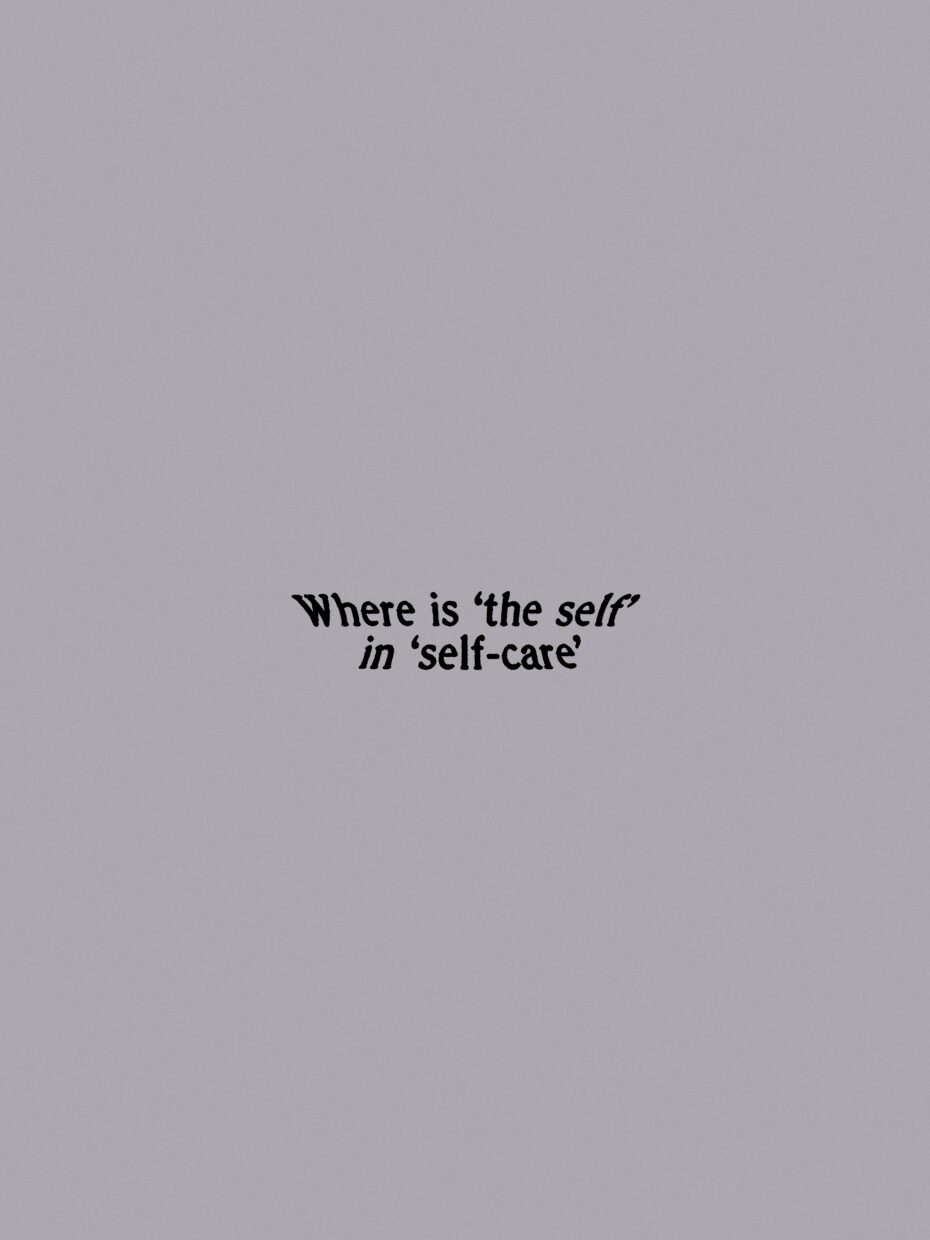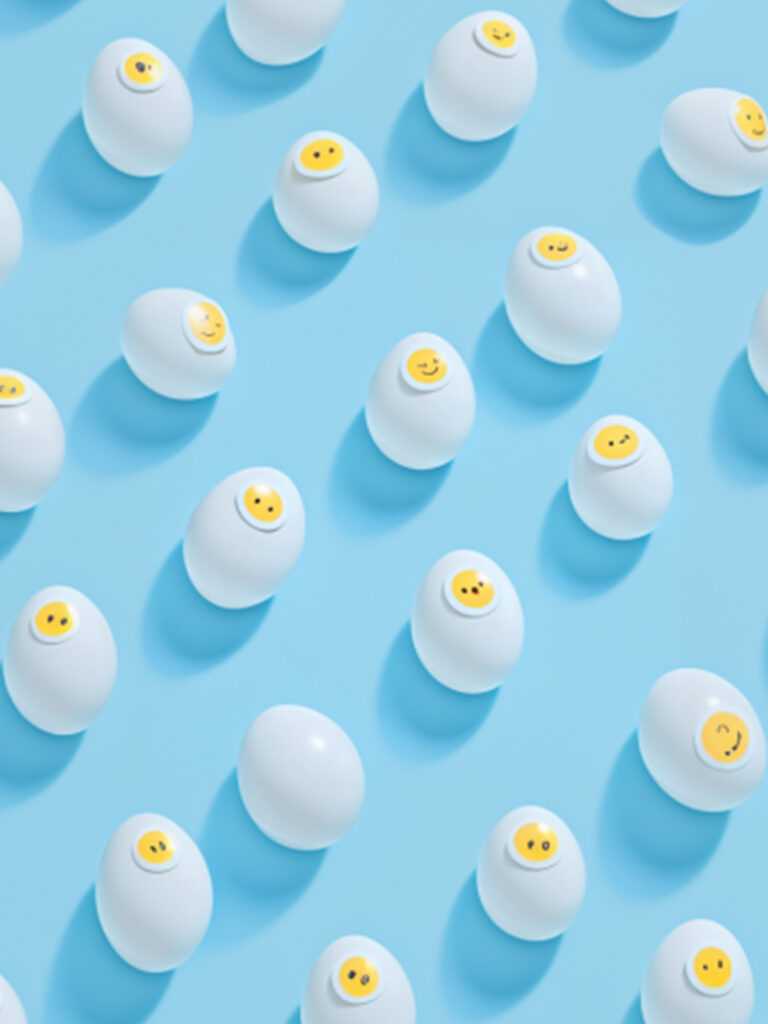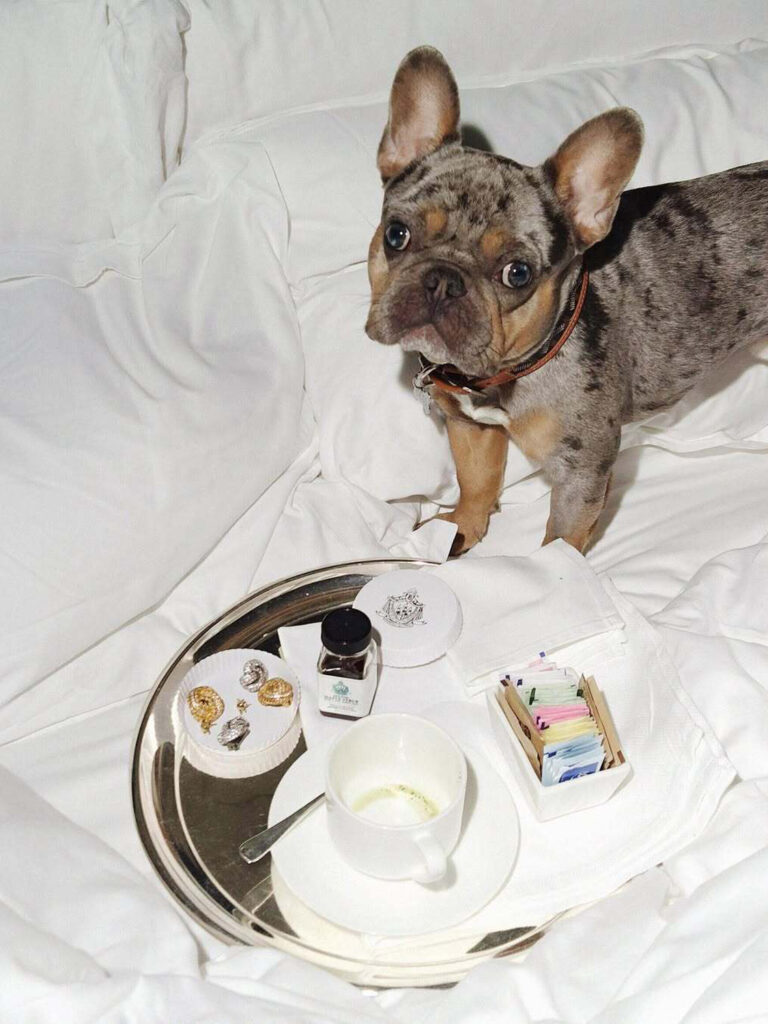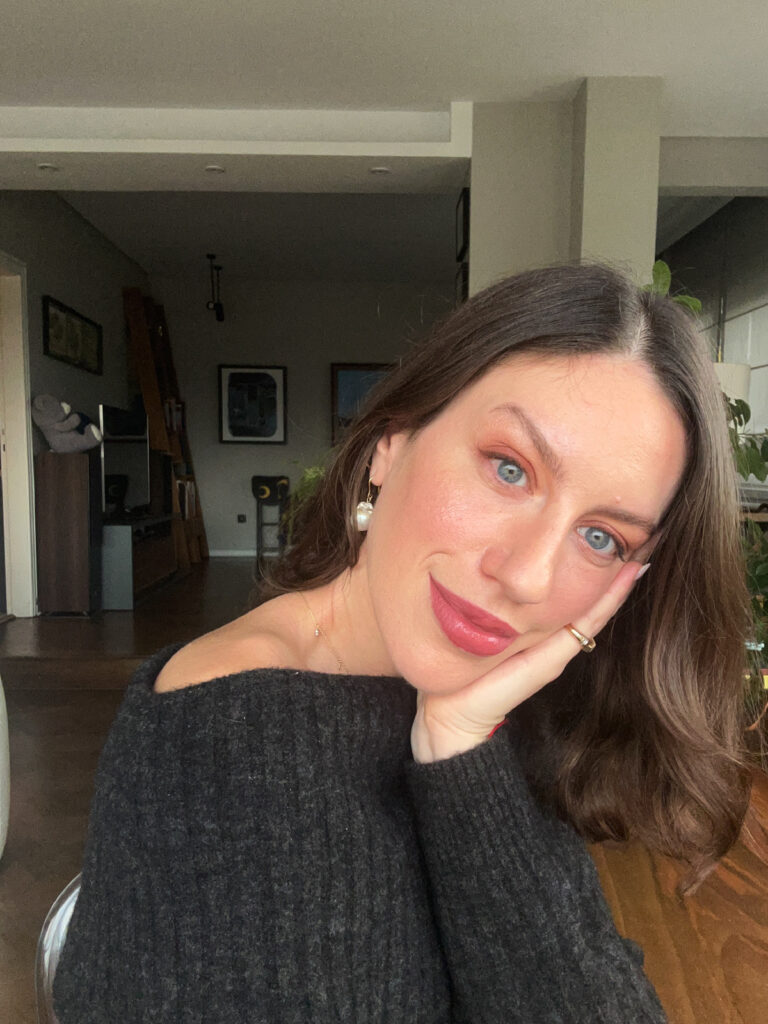
Stories
Where is ‘the self’ in self-care?
Reporting from a quest for my lost “self” in the self-care universe.
Text Şevval Yürüten
It’s confession time: I genuinely dislike the word self-care. So much, that I often find myself questioning my own self-love. What I don’t like is not the routines that evolve around what perhaps is the most popular word of the past few years. It’s the image that pops in my head when I hear it; it has a way of making me feel like I don’t belong in and around that particular world. I’m so far away from that almost stereotypical Instagram personality, a towel on her head, a clay mask on her face, and a glass of the greenest juice in her hand (hashtag self-care, hashtag wellbeing, hashtag vibes). My daily skincare routine is minimal, uninstagrammable and exists solely out of obligation. If I cannot be uplifted by skincare products praised by social media, smoothies greener than the greenest grass, or a towel wrapped around my head tightly enough it would induce a headache, am I excluded from the self-care universe?
Don’t get me wrong here. I may not like the word self-care, but the actions I choose to do for myself are essential parts of my life. Of course, I too have routines I follow to make myself feel better, like staying in bed and doing absolutely nothing on a Sunday, or isolating myself after a crowded gathering. And let’s not forget my favorite, cleaning my apartment with my guilty pleasure playlist full of 1990s Turkish pop. There are things that make me feel great, but don’t fit the generic definition of self-care, causing me to feel like I’m betraying the very concept. However, it does involve the word self, so shouldn’t the definition of self-care be more subjective instead of normative? Has the “self” in self-care gotten lost in recent years while we have been molding even the smallest pleasures we create for ourselves, into something that can be easily shared on social media? To find an answer, I took a little tour of the history of self-care.
Self-care has become wildly popular with the internet culture of the 2020s, yet its origin dates back -way- earlier. The first destination of our tour is yoga and meditation, two rituals embedded in ancient cultures. Such age-old acts of self-care aim to optimize the state of wellness – as we all know and benefit from regularly – and to soothe the body, the mind, and the soul. One can also find traces of this phenomena in the ancient Greek notion of epimeleia heautou, which translates to self-care. According to Socrates who was the first ever self-care influencer, although caring for the self may come with the risk of being charged with selfishness, it strengthens the connection we form with one another.
Postmodern thinker Michel Foucault interprets Socrates’ definition of self-care as the “art of living” (art de vivre) in today’s world. Foucault’s art of existence aims to enable individuals to undertake responsibility for themselves and aestheticize their lives. The “care of the self” (le Souci de soi) that lies at the heart of his philosophy, underlines the importance of knowing oneself on one’s path to care and wellness.
Fast forward to today. Considering the popular projection of the word, where is the “self” in self-care? My observation is that the almost sacred notion of being one with self, pampering oneself, and celebrating one’s own existence that lies at the heart of the ancient self-care philosophy has been replaced by the fast-changing and evolving trends of beauty and wellness. Is it just me, or has it become almost impossible to think of self-care without beauty products? So I ask the question: What kind of a product or activity can really be more principal than the self? More importantly, how can a list of feel-good activities that are supposed to be personal, evoke such common results – and similar Instagram posts?
Now, sit back, think about the things that make you happy to your core, and dedicate your chosen moment of self-care to that activity – even if it conflicts with the self-care rituals of our day, or even if it would be vetoed by the modern etiquette of social media. Since I’ve found what self-care means to me, it’s time for me to make peace with the word, and to shamelessly admit that my idiosyncratic rituals can, too, serve self-care.





